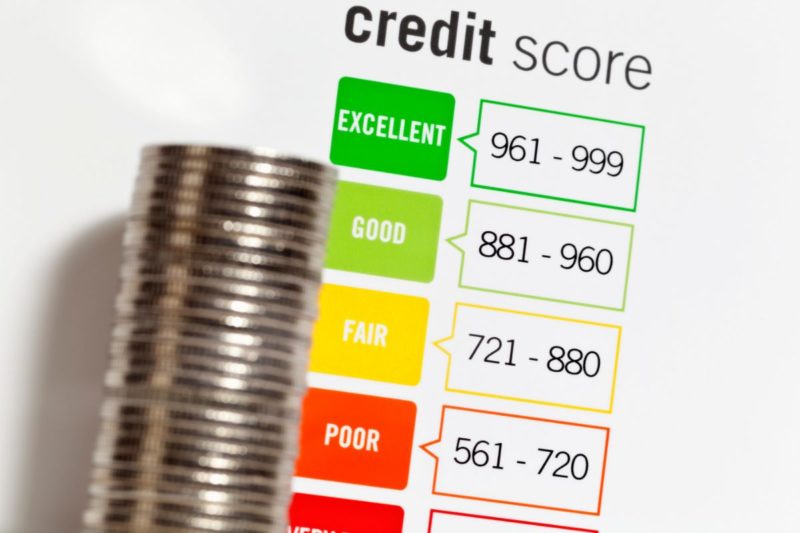Would you like to know what the current state of credit scores are? You have come to the right place. In this guide, we are going to talk you through some of the most interesting credit score statistics that you should know about.
Even though credit scores are very important when it comes to applying and getting approved for loans, being able to get a mortgage and even getting credit cards – it’s no secret that many people struggle to understand what a credit score is.
The credit score statistics that we are going to be sharing with you today will not only help you to understand what credit scores are a little bit better, but they will also be able to help you understand your credit score a little bit better, too.
Just read on to discover them.
What's Ahead...
15 Credit Score Statistics Everyone Should Know
No matter whether you’re looking to learn more about credit scores in general or you have a specific question on your mind – these next 15 statistics will be able to help you better understand the importance of credit scores, as well as the current situation of credit scores in the US.
Let’s check them out below:
1. The Number Of Americans With No Credit History
At the time of writing this guide, the number of Americans with no credit history is currently around 26 million adults. This works out to about 1 in 10 adults, and means that for every 10 American citizens, there is one that is considered to be credit invisible.
If you’re not overly familiar with the term, credit invisible essentially means that there is no credit history, which means that they do not have any lines of credit such as a credit card.
2. The Average Credit Score
At the time of writing this guide, the current average credit score for Americans according to FICO is 716.
There are many contributing factors to this average FICO credit score, and may be a result of fewer late payments, shrinking debits and even a decrease in the need for credit.
Of course, while there are many other types of credit models out there, FICO is considered to be the most reliable.
3. The Average Credit Score By Age
Even though the average credit score is 716 (according to FICO) you might also be interested in learning more about what the average credit score is for each general age group. Let’s check them out:
- Ages 18-23: Average credit score is 674
- Ages 24-39: Average credit score is 680
- Ages 40-55: Average credit score is 699
- Ages 56-74: Average credit score is 736
- Ages 75 and up: Average credit score is 758
4. The Average Credit Score By Income
At the time of writing this guide, the average credit score by income according to American Express are the following:
- Up to $30,000 per annum: 590
- $30k-$50k: 643
- $50k-$75K: 737
As you can see, a lower salary is linked to a lower credit score on average.
Keep in mind, this can be down to a variety of different factors including higher interest rates, as well as those with a higher income potentially having the ability to maintain a lower credit utilization level.
5. The Amount Of Credit Files That Don’t Qualify For FICO Scoring
According to The Ascent, a study found that according to data released in 2019, around 11 percent of Americans do not currently qualify for a FICO credit score.
6. The Amount Of Americans With A Credit Score of 800+
As you will have seen from previous statistics shared, the average credit score for Americans is 716. So, credit scores that are higher than this are outside of the normal range that many Americans find themselves.
On average, there are only around 21 percent of Americans who have a credit score that is 800 or higher. This credit score level is also considered to be excellent.
7. The Percentage Of Adults That Never Check Their Scores
A study that was carried out by Javelin Strategy and Research discovered that there are around 54% of American adults that never check their scores.
It is very important to make sure that you are remembering to check your score through respected credit reporting companies such as Experian.
8. The Percentage Of Adults That Check Their Scores Monthly
As we have already mentioned, it is very important to make sure that you are checking your scores regularly in order to stay on top of your progress and spot any mistakes.
A website called LendingTree has reported that there are only 33% percent of their users that check their score on a monthly basis.
9. The Percentage Of Americans With A FICO Score Below 550

The good news is that there is only a very small percentage of Americans with a credit score that falls below 550. According to data that was released by FICO in 2019, there is only around 11 percent of Americans who have a credit score rating of 550 or lower.
As well as this, Experian has also released data that shows that around 1 in 3 Americans have a subprime credit score.
10. The State With The Highest FICO Score
The Ascent (which is a reputable source that we have already referenced in a previous statistic) has also reported that the state with the highest average FICO credit score is Minnesota.
According to them, the average FICO credit score is 739, which is higher than the average credit score of the US in general.
11. The State With The Lowest FICO Score
Even though Minnesota has the highest credit score average, the state with the lowest average credit score also reported by The Ascent is Mississippi. According to The Ascent, the average FICO score is 675, which is much lower than the average US FICO credit score level.
12. The Credit Score Required To Buy Property
As we’re sure you might already know, you’ll need a certain credit score rating to be able to get a mortgage.
There are a few different types of mortgages available in the US, and which one is best for you will depend on your credit score rating. Use the following as a reference:
- Standard mortgage: 620
- VA Loan: 580
- FHA Loan: 500-580
These are the average scores recommended for each type of mortgage loan. If you find yourself falling below these scores, there are many ways that you can build your credit score.
13. The Credit Score Required To Buy Vehicles
According to the trusted source Investopedia, the average credit score required to purchase a car (on financing, that is) is a credit score of at least 661 or higher.
Although, do keep in mind that it is possible to get a car on finance with a lower credit score. However, it will often mean that you will be given higher interest rates or even require a co-signer on the loan contract to help protect the lender.
14. The Average FICO Increase Over The Past Decade
According to FICO, the national average FICO score has increased from 694 in 2009 up to an average of 716. This demonstrates that there has been a slow yet steady increase of the average credit score of Americans.
15. The Average Credit Score According To Generations
Average credit scores can also be broken down into generations. Check them out:
- Generation Z: 674
- Millennials: 680
- Generation X: 699
- Baby Boomers: 736
There are many different factors that can contribute to the varying averages of credit scores across the generations, including increased cost of living, higher interest rates and more.
Frequently Asked Questions
What Is The Highest Credit Score You Can Get?
The highest credit score that you can receive is 850. FICO scores range from a 300 all the way up to 850.
What Is Classified As A Perfect Credit Score?
As we have already mentioned above, the highest credit score that you can get is 850. That being said, if you would like to achieve the perfect credit score, then this can be achieved by obtaining a credit score of 850.
However, please also keep in mind that a credit score of anywhere close to 800 is considered to be very good and close to being perfect.
What Is Considered To Be A Poor Credit Score?
At the time of writing this guide, any FICO score that falls below a score of 580 is deemed to be a poor credit score.
Lower credit scores can make it more difficult to get accepted for loans and other lines of credit, and if they are approved – they often come with much higher interest rates.
The Bottom Line
There we have it! You’ve made it to the end of our guide.
Now that you’ve taken the time to read through this statistical article, we hope that we have been able to provide you with useful information about credit scores, as well as helped you understand yours a little bit better, too.
Thank you for reading.
Paul Martinez is the founder of BendingDestiny.com. He is an expert in the areas of finance, real estate, and eCommerce.
Join him on BendingDestiny.com to learn how to improve your financial life and excel in these areas. Before starting this blog, Paul built from scratch and managed two multi-million dollar companies. One in the real estate sector and one in the eCommerce sector.


